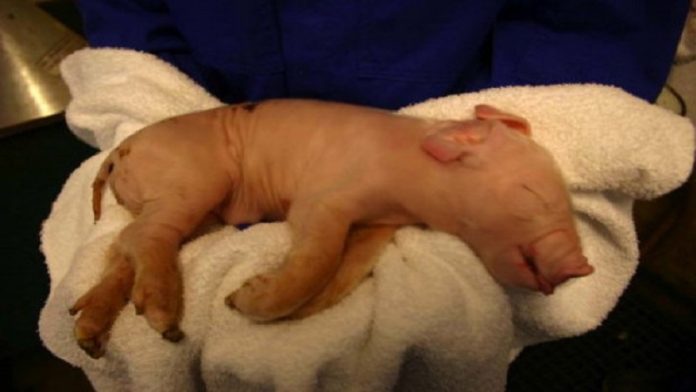
WARNING: If you are religious and/or offended by Monsanto and GMO’s, your about to be pissed. According to the several officials on the matter, if you have consumed meat or dairy over the course of the last two decades, you have “probably” consumed food directly from cloned livestock.
Just two decades ago, in 1996, a sheep named Dolly became the first successfully cloned mammal in history, success a relative term as the animal only lived to be 6 years – half the age of natural sheep. Despite the moral and ethical concerns raised by such scientific practices, you might be surprised to know that cloning livestock for food production has grown to be quite popular in South America, China and even the United States.
In 2008, after years of study on the matter, the Food and Drug Administration concluded that “food from cattle, swine and goat clones is as safe to eat as food from any other cattle, swine or goat.” For this reason, the FDA has never passed and measures, requirements or regulations to label meat or milk specifically produced from a cloned animal, or its offspring – whether sold domestically or abroad.
Aaron Levine, professor of bioethics and cloning at Georgia Tech University told Breitbart that “it’s fairly widespread in US to use cloning to produce breeding stock on farm.” Though these “cloned animals are not intended to enter the food supply directly,” Levine “suspects some may have.” The idea is to take the genetic material from the best physical specimens, reproduce them (clone them) in a lab, and introduce them to natural populations in order to breed the ‘superior’ offspring.
This practice has been going on behind the scenes, unregulated for longer than anyone realizes over the last 20 years. Apparently, the two largest cloning facilities in the U.S. are Cyagra, based in Elizabethtown, Pennsylvania, and ViaGen, in Austin, Texas. Both companies strive to produce a few hundred to a few thousands clones each year.
Another company, The Boyalife Group, located in Tianjin, China, is said to produce nearly 100,000 cloned cows each year. They’re eventually hoping to boost output to 1 million by the year 2020.
So far, the European Union has led the charge towards prohibiting the artificial creation of live stock, banning cloned animals from mating with natural animals entirely. However as Pauline Constant, spokeswoman for the European Office of Consumer Associations in Brussels warns, meat and/or milk derived from cows with cloned ancestors, may indeed still make its way into European markets.
This meat/milk may have been imported directly into the EU from outside sources, or contaminated by an animal bred from genetic material brought in from outside the EU. As she has publicly stated in the past, “without knowing it, Europeans are probably eating meat from the descendants of clones that cannot be traced.”
Though officials admit this has “probably” occurred, they say there is no known negative impact to human health at this time and therefor are not overly concerned. It remains more of a moral/ethical debate, not a public health debate.
Argentina, Brazil, Canada, North Korea and Australia are among the other global leaders who regularly clone agricultural livestock.
Source: Breitbart
You want to support Anonymous Independent & Investigative News? Please, follow us on Twitter: Follow @AnonymousNewsHQ
This article (Think GMO’s Are Bad? You’ve Probably Eaten Cloned Meat without Knowing) is a free and open source. You have permission to republish this article using a creative commons license with attribution to the author and AnonHQ. Join the conversations at www.anonboards.com




